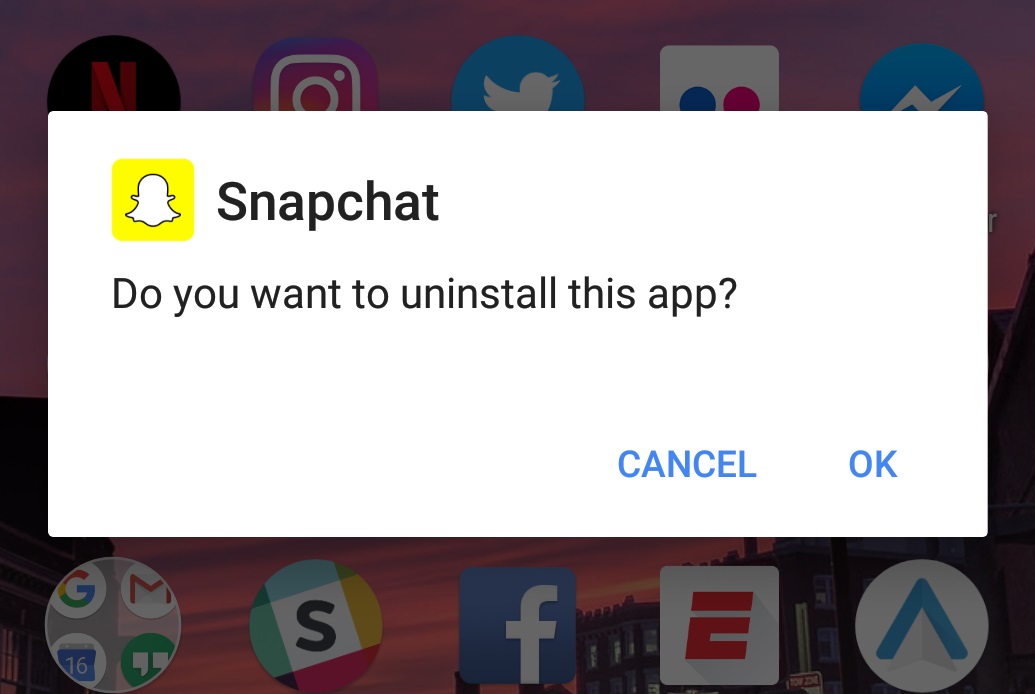
Some brands and marketers just can’t wait to do some sort of gee-whiz fun prank online on April Fool’s Day. Too many do it without regard to whether it fits their brand image or not (ahem, GOP). Others just do something that is not funny and probably borderline cruel to their fans, such as this by the makers of a canceled TV show I never heard of that apparently had a lot of passionate fans and thought it would be “funny” to tease them with a fake renewal announcement:
Happy…April Fools' Day! Sorry! All for fun. Caspe & Co had nothing to do with it. Thanks for being so hyper-passionate about the show.
— Happy Endings (@happywrites) April 1, 2015
Don’t do that.
Ok, some are awesome. Carry on, Google.
So- how is a marketer to decide whether or not to carry on with that April Fool’s Day planning? First, read this helpful article from Scripted.com. Did you find you needed this advice? Then please, for the love of God, don’t do anything for April Fool’s Day. Thanks.

How to Tell That Blockchain is Mainstream…
…when your friends spam you with invites to a blockchain-based social network! Thanks but no thanks, Dock.io Apparently, people trying out this “decentralized data exchange” that basically appears to be a blockchain-powered professional connections network (or perhaps a decentralized LinkedIn with better privacy controls). Sounds interesting, but not if their first move is to spam a new user’s contacts with invitations. No, thank you- I have been down that road with a number of social networks, the best examples involve names I regrettably cannot remember.
Meanwhile, blockchain is something we will only be hearing more about as different industries (like supply chain, but surely others) figure out how it can work for them and improve on what they do today, . I found this pretty straightforward explanation of blockchain that should be all anyone needs to get the basics.

Oh, Snapchat…
Was it just a couple of weeks ago that Kylie Jenner sent Snapchat’s stock reeling after she decided she didn’t like the new interface? It appears Rihanna did her one better (aside from being more talented in the first place); after an offensive ad mocking her past domestic abuse problems with Chris Brown, she encouraged people to get rid of the app– and the stock plunged five percent. Stock market overreactions are temporary, but this is just another black eye for a company with a history of idiotic insensitivity to race and violence against women- so forget about user experience.
I’m not one to pick up torches and pitchforks against a company, but come on…
I hate Futurist Predictions, But…
Prediction: Google will look like a hybrid of Naver and Wolfram Alpha by 2022. When links are shown they will be ranked by Google hosted content (AMP, Android, YouTube, Google Maps, GMB, etc…) first, then the open web. Position 1 will be located at today's Position 5 or 6.
— Joe Youngblood (@YoungbloodJoe) March 16, 2018
When do things really die? How long is a long time for change? Is predicting something will change completely or be gone forever in 2025 haphazard hypothesizing, or prescient predication? I was thinking about this after reading (see above Tweet) this interesting, if over-reactionary, thread based on Google’s new “Zero result” for certain search queries, such as the current time. Does this mean Google is getting out of the search business? Pushing their own content far ahead of outside web links? It is way too early to do anything but speculate. I am faced with this conundrum frequently from folks who see the future the way children see monsters under the bed: car ownership will be zero in (INSERT YEAR HERE); driverless cars will be the norm in your city in (X NUMBER OF YEARS- HECK, MONTHS!!!).
Does that mean predictions are worthless? If you see them as jumping-off points for discussion rather than real predictions of fact, they are more useful. I should think of it in that light more often.
Strava- Now with Less National Security Risk!
A while back, I heard about Strava having a little trouble when some folks discovered public activity posts that seemed to indicate locations of troops near sensitive locations. Strava has overhauled that now, which is good. Is the problem Stava’s, or is it lax oversight by the government and military along with a lack of common sense by the individuals using it? What other social networks are potentially giving away things one should not be revealing? I’m hesitant to blame Strava over the users (and their superiors) here, but good on them for providing a fix. For my personal use, Strava lets me obscure my home address when tracking bike rides; that’s a minor, not super-iron-clad privacy feature, but it does show that they have given it a little thought.
Hey, five this week! Cool.